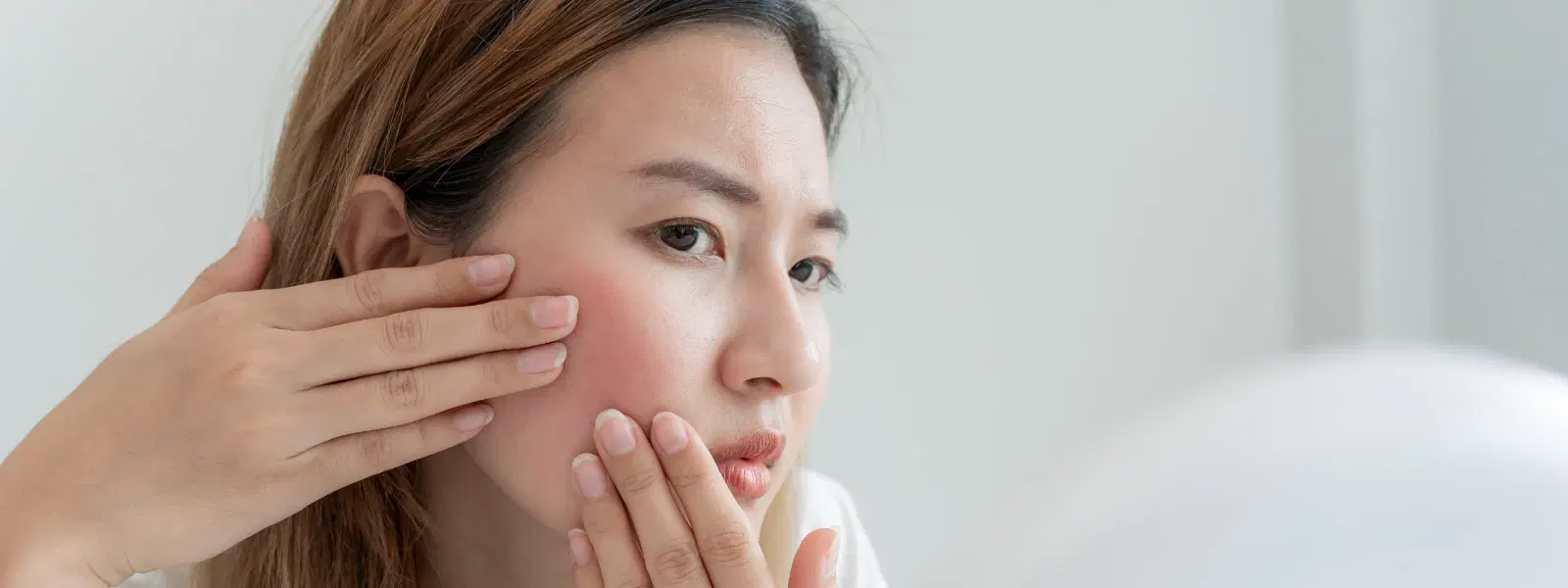
Beauty & Skincare
•03 min read
-9872eb55-9af0-4022-8644-bd8f05e8333e.png&w=3840&q=75)
Seborrheic dermatitis is a common yet often misunderstood skin condition that affects the scalp, face, and other areas with high oil production. In this guide, we will walk you through an essential checklist to manage your skin's needs. Whether you're dealing with symptoms like dry, flaky skin, often mistaken for scalp psoriasis, or relentless dandruff remedies, this checklist is your go-to roadmap for effective care.
Seborrheic dermatitis is a chronic inflammatory condition that primarily affects areas full of sebaceous glands. It is often confused with scalp psoriasis or simple dandruff, yet it presents with distinctive signs such as greasy scales and redness. This condition can appear on the scalp, face, or even the chest. The key symptoms to watch for include persistent dandruff, irritation, and itching that demand careful itchy scalp care to prevent worsening effects. Triggers like weather changes, stress, and even vitamin deficiencies might contribute to flare-ups. Recognizing these signs early helps in selecting the right treatments and tailored skincare routines.
Starting your day with the right routine is crucial in maintaining natural skin hydration while addressing seborrheic dermatitis. Begin by cleansing the affected areas with a gentle cleanser that is specially formulated for sensitive skin. This will help remove excess oil and debris without stripping your skin’s natural moisture. A gentle, fragrance-free cleanser can pave the way for subsequent steps that focus on anti-inflammatory skincare. Consistent cleansing, combined with gentle exfoliation for face and scalp, will help remove flaky skin while keeping irritation at bay. Opting for products marked as 'gentle exfoliation for face' ensures that your skin is refreshed without being overdone.
Moisturizing is another cornerstone of a soothing skincare routine. After cleansing and mild exfoliation, use a moisturizer designed for irritated skin. Such moisturizers, free from harsh chemicals and added fragrances, lock in moisture and help repair the skin barrier. This approach not only addresses concerns like dry flaky skin treatment but also boosts your skin’s resilience against environmental triggers.
For many, the use of medicated shampoos and targeted scalp treatments is a critical part of managing seborrheic dermatitis. Look for formulations that contain active ingredients like ketoconazole, selenium sulfide, or zinc pyrithione; these help manage the overgrowth of yeasts responsible for inflammation. Beyond conventional treatments, there are effective home remedies that can complement your regimen:
Diluted tea tree oil offers natural antifungal benefits.
Aloe vera gel provides soothing relief.
Coconut oil, noted for its role in dry flaky skin treatment, locks in moisture naturally.
-5ba1f1f6-995b-4617-a1ff-43890351cff7.png&w=3840&q=75)
These approaches, when combined, pave the path to a balanced and comprehensive care routine.
Expert Tip: The Power of Consistency
Consistency is the cornerstone of managing seborrheic dermatitis. Stick to a soothing skincare routine, use sensitive skin products, and avoid known triggers to significantly reduce flare-ups. Small daily habits lead to long-term improvements in skin health.
While the right products play a significant role in your skincare routine, lifestyle choices are just as important. Reducing triggers starts with avoiding harsh treatments that can irritate your already sensitive skin. Instead, opt for milder formulations that support anti-inflammatory skincare. Protect your skin against extreme weather—cold or dry conditions can worsen symptoms, while a good moisturizer can provide natural skin hydration throughout the day.
Diet also plays a crucial role. Incorporate anti-inflammatory foods in your meals, such as fatty fish, leafy greens, and nuts, to nourish your skin from within. In addition, monitoring your vitamin levels, particularly B2, B6, and zinc, can further support your skin’s barrier function. Lastly, managing stress through mindfulness practices like meditation or yoga can help reduce the severity of flare-ups, creating a holistic approach to skin care that supports overall well-being.
Create a balanced routine that fits seamlessly into your daily life. In the morning, start with a mild, fragrance-free cleanser. Follow it with a lightweight moisturizer designed for irritated skin, which also provides natural skin hydration along with sun protection if needed. On days when scalp symptoms are pronounced, a medicated shampoo can be included during your shower routine to address concerns of dandruff remedies and itchy scalp care.
Evenings are ideal for a second cleanse to remove the day’s buildup. Apply a soothing serum or cream enriched with anti-inflammatory skincare ingredients. Reinforcing your routine with a night cream will ensure that your skin remains hydrated and calm overnight. A weekly treatment involving a gentle exfoliation for face and scalp can help clear away excess flakiness, and a hydrating mask can provide an extra boost for areas needing calm and attention.

Seborrheic dermatitis cannot be completely cured, but it can be managed with consistent use of medicated shampoos, soothing skincare routines, and careful lifestyle adjustments.
Yes, it involves an overgrowth of the Malassezia yeast, which is naturally present on the skin but can lead to inflammation when conditions are right.
Deficiencies in vitamins B2, B6, and zinc may contribute to seborrheic dermatitis. A balanced diet can help maintain proper levels.
Yes, natural remedies like tea tree oil, aloe vera, and coconut oil can complement your treatment and help with dry flaky skin treatment and overall skin hydration.
Managing seborrheic dermatitis requires a holistic, patient approach that blends the right skincare products with sensible lifestyle choices and dietary adjustments. By following this essential checklist, you can reduce flare-ups and embrace a soothing skincare routine that not only alleviates symptoms but also supports long-term skin health. Every skin type is unique, and finding what works best for you is key to maintaining a balanced, confident personal style that celebrates authenticity and self-expression.